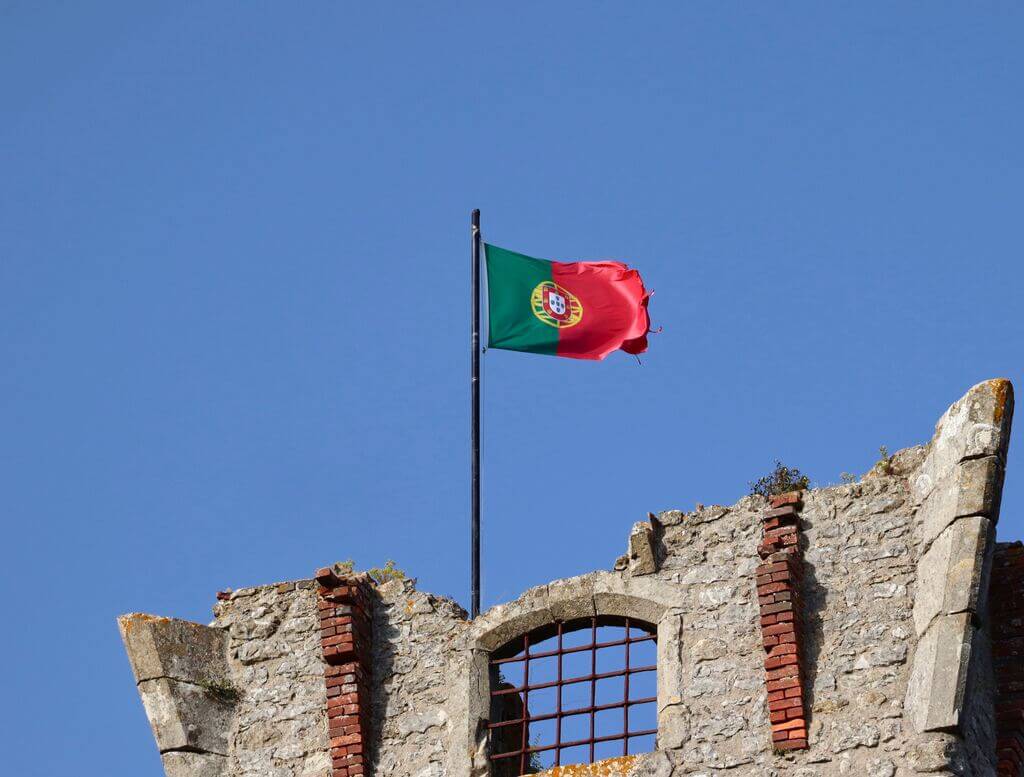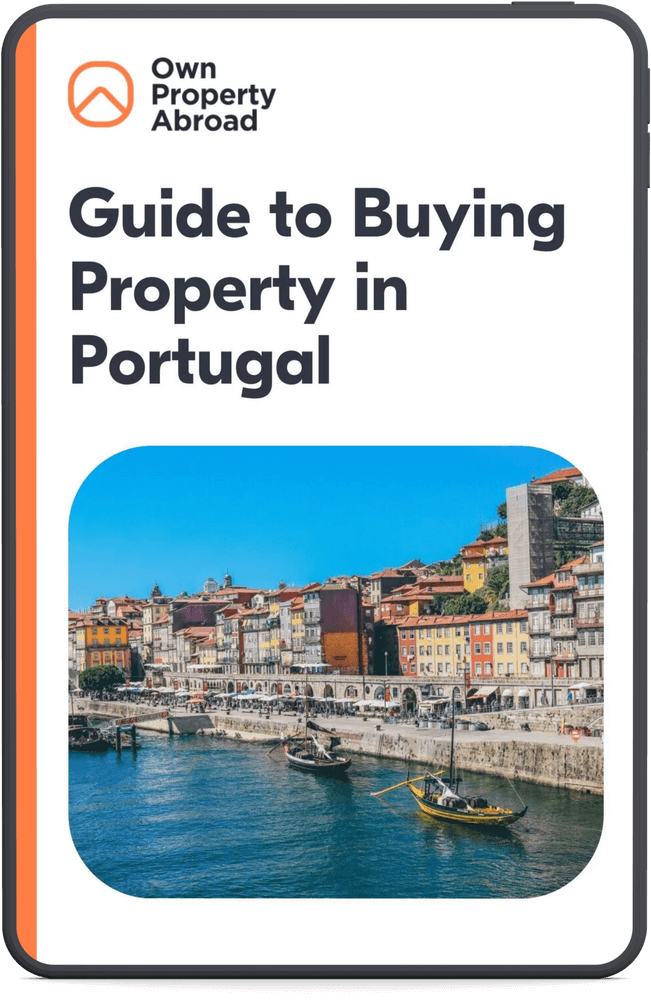What is the Portugal D7 Visa?
The D7 Visa, or the Retirement Visa or Passive Income Visa, enables non-EU individuals with a reasonable and consistent net passive income to apply for residency in Portugal. Passive income can stem from pensions, real estate, intellectual property, or financial investments.
To qualify for this visa, the minimum required monthly income is €760 ($831) per month, with an additional 50% of this amount for the spouse and 30% for each dependent child, regardless of their country of origin.
It allows you and your family to reside in Portugal legally and is ideal for retirees and individuals relying on passive income, aiming to boost the country’s economy.
Valuable insights and practical advice, distilled from years of expertise and real-world experience.


What are the Portugal D7 Visa requirements?
The specific Portugal D7 Visa requirements may vary, but generally, you will need to prepare the following:
- Portugal D7 Visa application form PDF (click here to get a copy from your consulate).
- A passport that remains valid for at least six months beyond the expiration date of your D7 Visa.
- Two recent colored passport-sized photos.
- A declaration outlining the reasons for your visa application.
- Health insurance coverage.
- A certificate of your criminal record.
- Travel insurance.
- Proof of accommodation in Portugal.
- Proof of sufficient funds.
- Evidence of your regular passive income after taxes.
It is important to note that these requirements may change, so it is advisable to consult the immigration consultants for the most up-to-date information.
Minimum passive income requirements for the D7 Visa
To obtain the D7 Visa, you must provide proof of financial stability by demonstrating passive income. This passive income must be enough to support yourself without relying on your salary. Passive income that is eligible includes pension, rental property, transferable equity, royalties, intellectual property, fixed-rate financial investment, dividends, and interest from adequate savings.
- Passive income requirements for single applicants: Single applicants must provide proof of a passive income of at least €760 ($831) per month or €9,120 ($9,968) per year.
- Passive income requirements for married couples: The total minimum passive income required, including an additional €380 ($415) per month for a dependent adult (50% of the primary applicant), amounts to €13,680 ($14,952) per year, with €4,560 ($4,984) allocated explicitly for the spouse or dependent adult.
- Passive income requirements for dependent children: For children under 18, the minimum passive income required is €228 ($249) per month or €2,736 ($2,990) per year, which accounts for approximately 30% of the primary applicant’s total needed passive income.
- Passive income requirements for elderly parents: Applicants can apply for their financially dependent parents’ residency status, provided they live with the applicant or their spouse and receive full housing and support. The application can be submitted only after the applicant has relocated and established residency.
How to apply for the Portugal D7 Visa in 9 steps
You can apply for the D7 Visa in Portugal by following the nine steps below.
Step 1: Obtain a NIF
Like many other transactions in Portugal, getting the visa begins with a Numero Identificacao Fiscal (NIF), which you would probably be more familiar with as a Tax Identification Number. Obtaining a NIF can be done at any government finance office in Portugal. If you are not physically present in Portugal, you can authorize someone with a power of attorney or a fiscal representative to obtain the NIF on your behalf.
Take the first step towards obtaining your Portuguese NIF by clicking the button below and completing the process online. For only $150, you can easily acquire your NIF and enjoy the benefits it offers.
Step 2: Open a bank account
Once you have obtained the NIF, opening a bank account in Portugal is mandatory to get a D7 Visa or buy property in Portugal. Foreigners can easily open a bank account, with popular options including Millennium BCP, Novo Banco, Banco Santander Totta, Banco BPI, or Caixa Geral de Depósitos.
Foreigners can initiate the process by visiting a local branch of their chosen bank and providing the required documents, which typically include a passport, proof of address, proof of employment, Portuguese Tax Identification Number (NIF), a Portuguese phone number, and a cash deposit, usually around €250 ($273). You will receive a debit card after the registration process.
You can open a bank account in Portugal through an online service, that allows you to open a bank account remotely (3 to 4 weeks) or in-person (1 to 2 weeks). Click the button below to get started.
Step 3: Securing a place to live
Another requirement for a D7 Visa is proof that you have a place to stay in Portugal. It might be a rental agreement, but you can also purchase an ideal house if you intend to retire in the country.
Step 4: Gather your documentation and complete the D7 Visa application form
First, gather all the required documentation before applying through the D7 Visa application form, as this may take some time. Once assembled, you can fill out the Portugal D7 Visa application form. Make sure to double-check to ensure everything is correct.
Step 5: Submit the D7 Visa application
To apply for a D7 Visa, you must visit the Portuguese consulate in your city. It involves submitting the required documentation and paying fees and taxes. The costs are around €75 ($81.98) for the D7 Visa and €90 ($98.37) for the residency permit.
It is important to carefully complete the application and accurately provide all the requested information to ensure the smooth processing of your D7 Visa application. The Embassy may ask you to leave your passport with them so they can attach the visa to your passport.
Step 6: Receive your new visa
After a successful D7 Visa application, the Portuguese Embassy will notify you via email or mail, which typically takes 60-90 days. Once approved, the Embassy will add your new Temporary Residency Visa to your passport, which you can collect on weekdays at the Embassy by presenting your receipt and a copy of your ID.
It is crucial to ensure the visa details are accurate to avoid any issues at border control, as incorrect information may result in being denied entry and potentially sent back to your home country.
Step 7: Travel to Portugal for your SEF appointment
After receiving your new visa, you can travel to Portugal for four months (120 days) and must schedule an appointment at Serviço de Estrangeiros e Fronteira (SEF). If your intended travel date were provided, the Embassy would typically schedule the SEF appointment for you, which can be found on your new passport under “appointment.”
If no appointment is scheduled, you must use the SEF portal to schedule one, ensuring you select the bureau closest to your residence. If the planned SEF appointment falls after your D7 Visa expires, you can request a confirmation email from SEF while scheduling the appointment, which will extend your visa. Print this email and keep it with your passport to travel to Portugal even if your visa has expired.
Step 8: Attending the SEF appointment
During your approximately 20-minute SEF appointment, you must be well-prepared and bring all required documents and their Portuguese translations. Some of the papers you will need to present include:
- Application form (different from the visa application form).
- Two recent color photographs with a blank background.
- Valid passport and copies.
- Valid residency visa.
- Proof of sufficient funds.
- Proof of accommodation (rental agreement or property purchase documents).
- Permission to check your criminal record.
- Número de Identificação Fiscal (NIF) proving your tax registration.
- Social security document (if applicable).
- Supporting document showing valid medical insurance coverage.
Being overly prepared for your appointment is recommended, as applying for residency in Portugal requires thorough documentation to ensure a smooth process.
Step 9: Receiving your residency permit
Congratulations on completing the entire application process for your new Portuguese Residence Permit. Although the procedure may have been challenging and occasionally tiring, the result is gratifying. Your Residence Permit will be dispatched to your home address or the local post office, and you can anticipate receiving it within approximately two weeks.

How long does it take to get a D7 Visa in Portugal?
The length of the application time for a D7 Visa would depend on various factors, especially considering the time for opening a bank account and how quickly you can find a property as your accommodation. Immigration officers may also require additional documents. Expect that you will be able to get a D7 in two months or more.
Costs
In addition to the accommodation cost and Portugal D7 Visa income requirements, expect to pay at least for the D7 Visa and €90 ($98.37) for the residency permit. Read further to find out about Portugal’s D7 Visa taxes.
Renewal of D7 Visa
After the expiration of your initial D7 Visa, you have the opportunity to apply for its renewal. To be eligible for renewal, you must meet the stay requirements, which entail staying in Portugal for six consecutive months or eight non-consecutive months each year.
After five years of holding a D7 Visa and renewing your residence permit, you may become eligible to apply for permanent residence or even Portuguese citizenship.
Do D7 Visa holders pay taxes in Portugal?
When a non-national resides in Portugal for 183 days or more in a year, they are considered a tax resident, subject to Portuguese tax rates on their worldwide income.
D7 Visa holders are not entirely tax-free, but you can enjoy the perks under the Non-Habitual Residency (NHR) regime. Individuals who become Portuguese tax residents can apply for the Non-Habitual Resident (NHR) status, which grants them tax benefits for ten years. These benefits include a reduced income tax rate of 20% on income earned in Portugal and 10% on pensions from abroad by holders of a D7 Retirement Visa in Portugal.
D7 Visa vs. Golden Visa
Many often need clarification on the D7 Visa and Golden Visa in Portugal. The D7 Visa and the Golden Visa are two different types of visas available in Portugal.
- The D7 Visa in Portugal is a residence visa for individuals who wish to move to Portugal. The minimum requirement is having enough passive income sufficient to support oneself. This visa allows for residency in Portugal and grants the holder the right to live, work, and study there. The D7 Visa does not require a significant investment in Portugal but instead focuses on providing sufficient financial means to support oneself.
- The Golden Visa is a residency-by-investment program allowing non-EU citizens to obtain Portuguese residency by qualifying for the country. You can make this investment in various forms, including real estate.
In summary, the D7 Visa relies on having a regular source of income, while the Golden Visa is through a significant investment in Portugal. Both offer different pathways to residency in Portugal, catering to other circumstances and objectives.
Can I buy a home in Portugal with a D7 Visa?
Buying a home in Portugal is possible once you have a D7 Visa. The D7 Visa allows you to reside in Portugal, and there are no restrictions on property ownership for D7 Visa holders. You can purchase a property as your accommodation for visa purposes or even as an investment.
Get your D7 Visa in Portugal with Own Property Abroad
Do you want to obtain a D7 Visa in Portugal? Thanks to our knowledge and experience in the local market, we can help with your D7 Visa and real estate matters, such as legal requirements, finding suitable properties, negotiating the best deals, and conducting due diligence.
With our expert team, you won’t have to navigate the complexities of the Portuguese market alone. For further information on how we can assist you, kindly drop your details below or email us at [email protected].
Valuable insights and practical advice, distilled from years of expertise and real-world experience.


Frequently Asked Questions (FAQs)
How to get a D7 Visa in Portugal?
To obtain a D7 Visa in Portugal, you will need to gather the required documentation, and two of the most important are proof of passive income and proof of accommodation. Once you have prepared the necessary documents, you can apply for the D7 Visa at a Portuguese consulate.
Who is eligible for a D7 Visa in Portugal?
The D7 Visa in Portugal is available to individuals who can demonstrate a regular source of income or sufficient passive income to support themselves during their stay in the country. Retirees commonly seek it as individuals with monthly investment income or stable incomes of at least €760 ($831).
Can I get a job in Portugal with a D7 Visa?
It does not grant automatic permission to work in Portugal unless you obtain a separate work permit. Nonetheless, Portugal D7 Visa remote work allows foreigners who work online to live in the country without getting a separate license.
Which is better: the D7 Visa or a Golden Visa in Portugal?
It would depend on your financial capability since the Golden Visa requires a minimum investment amount while the D7 requires a monthly minimum passive income. Nonetheless, there are talks about the Golden Visa ending, so opting for D7 might be better.





